Access for All
Every student deserves the opportunity to succeed in science. This collection of posts focuses on access for all learners, with strategies to support differentiated instruction. Explore tools and approaches that help teachers remove barriers and create meaningful science experiences for every student in the classroom.
-
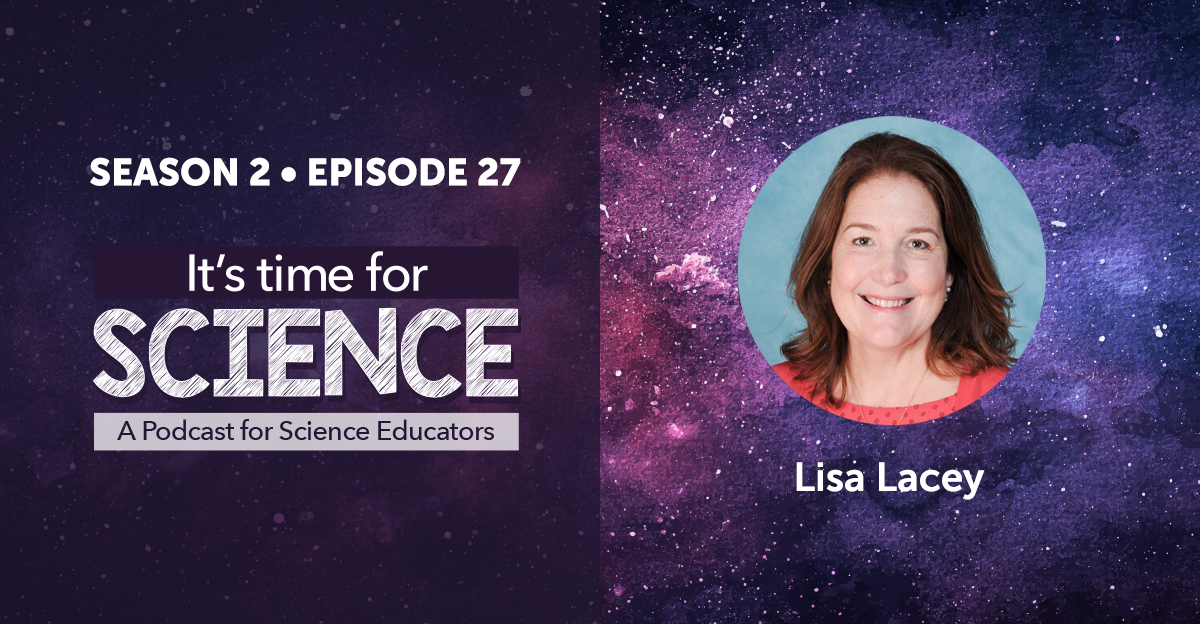
Student Voices in the Classroom
Read more: Student Voices in the ClassroomIt’s back-to-school season, and we’re kicking things off with something new on It’s Time for Science: conversations with students themselves! In this episode, Tom sits down with third-grade teacher Lisa Lacey to talk about embedded assessment, student collaboration, academic vocabulary, and more. Lisa Lacey teaches third grade in England and has spent her career working…
-

Access for All in Science Instruction
Read more: Access for All in Science InstructionIn today’s diverse classrooms, ensuring access in science instruction is essential for fostering scientific literacy and success among all students. As educators, it’s our responsibility to recognize and address the unique challenges faced by students from various backgrounds and abilities. Thoughtful and inclusive strategies will support and assist every student in the classroom, not just…
-
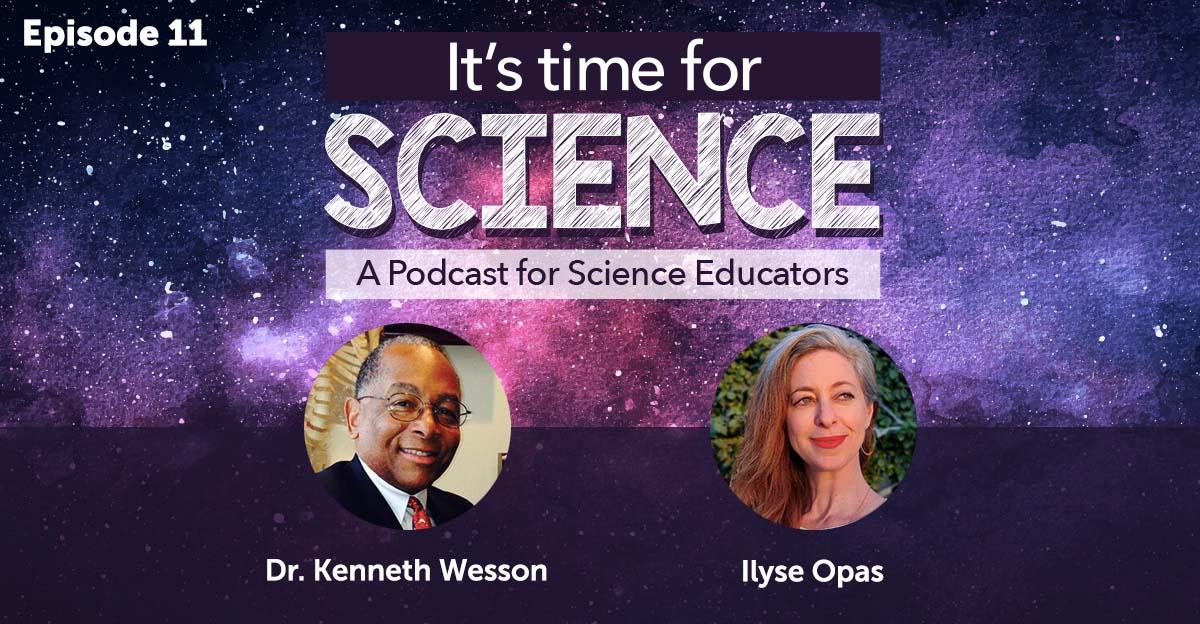
Social and Emotional Learning in Science
Read more: Social and Emotional Learning in ScienceThis month on It’s Time for Science, it’s time to talk about social and emotional learning (SEL)! Host Tom Racine interviews Dr. Kenneth Wesson, a consultant on the science of education, learning, and the brain, and Ilyse Opas, Independent Educational Consultant specializing in SEL. Tom begins by discussing with Dr. Wesson what SEL is and what…
-

Activate SEL Through Active Science Learning and Investigations
Read more: Activate SEL Through Active Science Learning and InvestigationsSocial emotional learning, or SEL, is an important concept that embraces the emotions of students as a tool in their learning. It has broad implications in a variety of academic subjects, but more importantly, it leads students to develop healthier identities and manage their emotions. That foundation is critical for academic success in everything from…
-
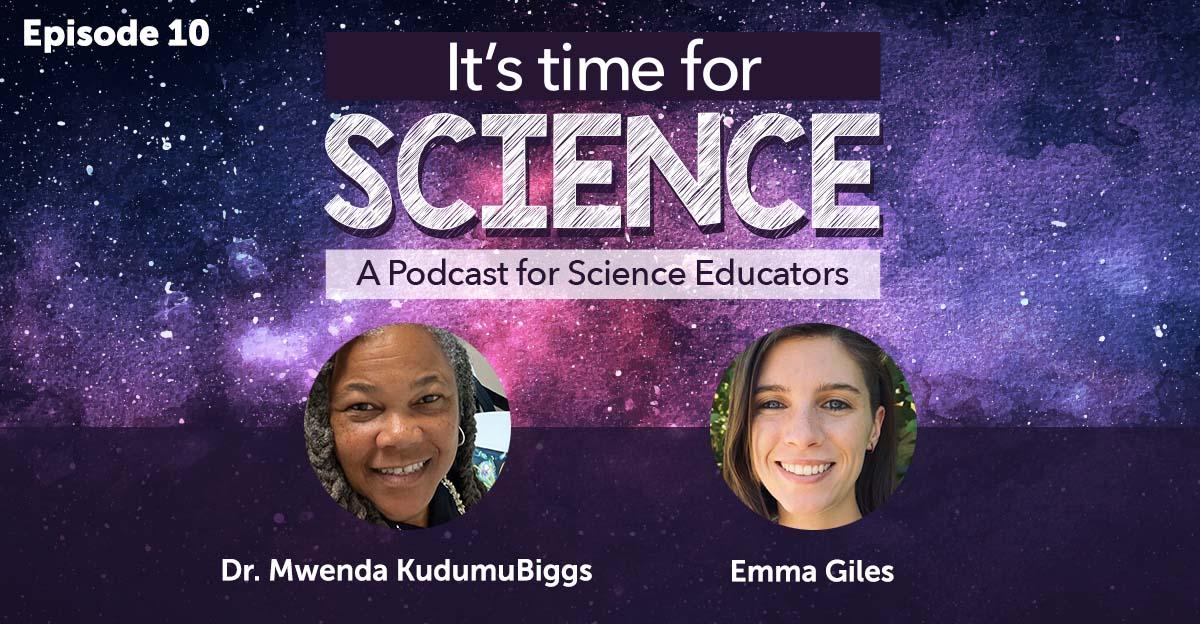
Community Engagement and Citizen Scientists
Read more: Community Engagement and Citizen ScientistsThis month on It’s Time for Science, it’s time to talk about community engagement and citizen scientists! Host Tom Racine talks with Dr. Mwenda KudumuBiggs from the Fleet Science Center and Emma Giles from SciStarter. In this episode, Tom speaks with Dr. KudumuBiggs about her position at the Fleet Science Center, why it’s so important to…
-
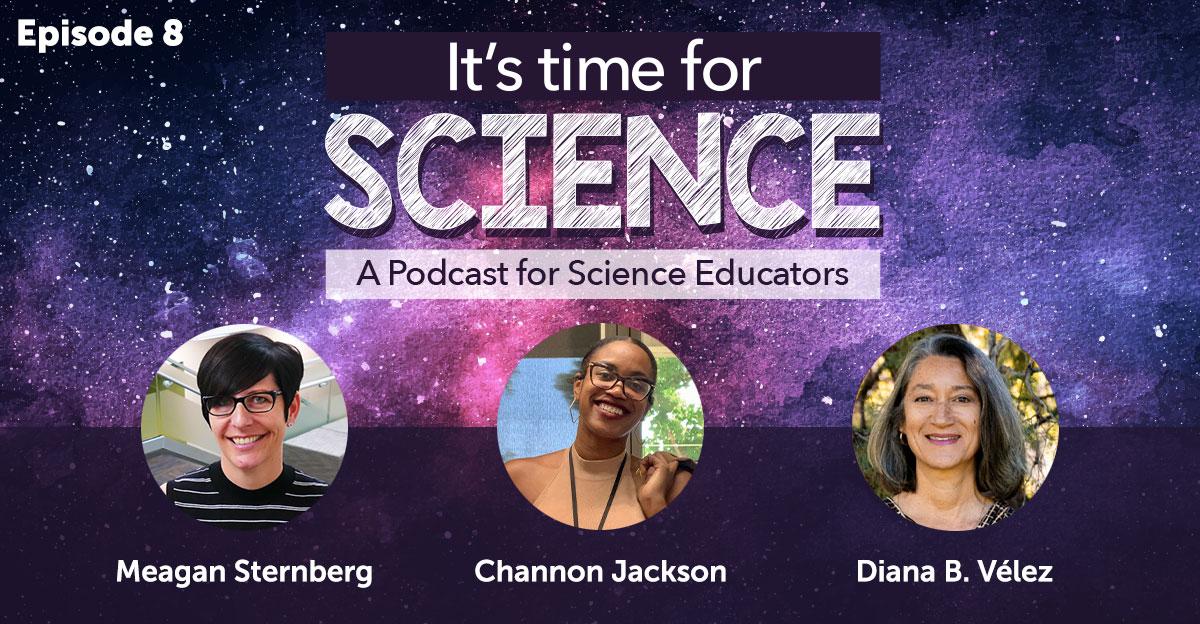
Equity in Science Education, Part 2
Read more: Equity in Science Education, Part 2Welcome to It’s Time for Science! For our first episode of 2024, host Tom Racine continues our conversation on equity in science education! Tom talks with Meagan Sternberg, a K-12 Science Instructional Coach in Oregon, and Channon Jackson, a Program Director at the Alameda County Office of Education. Tom discusses with Ms. Sternberg and Ms. Jackson…
-

Access and Equity: Changing How We View and Support All Students
Read more: Access and Equity: Changing How We View and Support All StudentsAs schools and districts implement the Next Generation Science Standards (NGSS), using three-dimensional learning, focused on figuring out phenomena, there’s another critical piece that needs ongoing attention—making sure we tap into the assets and diverse needs of all students. How do we truly ensure every child is engaged in the science learning experience and developing…
-
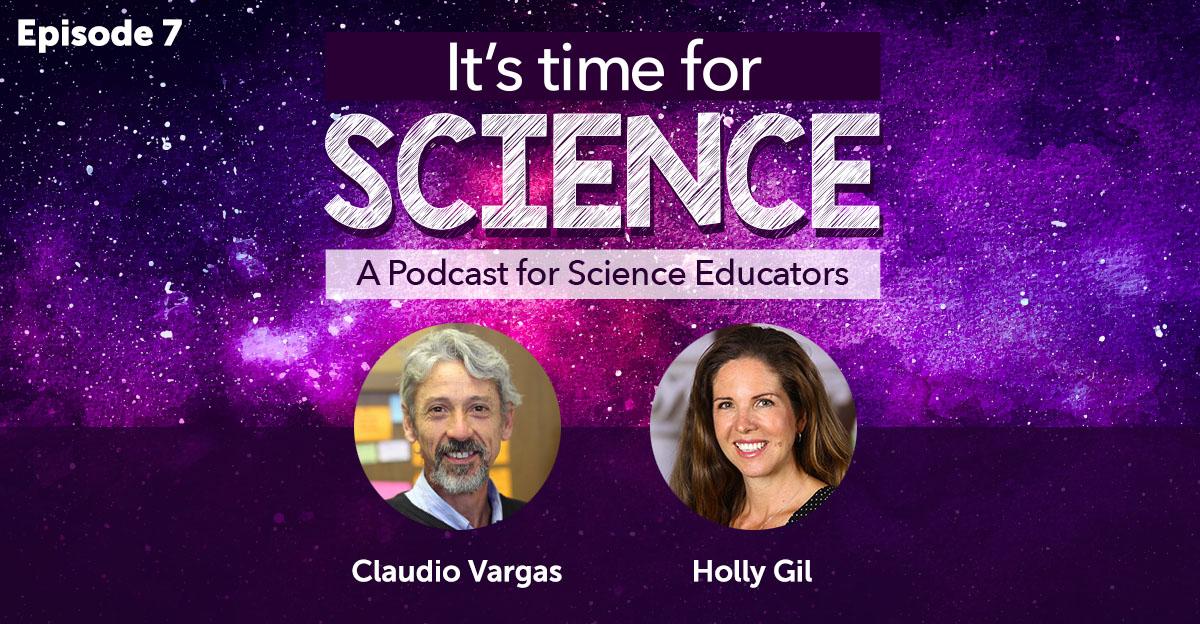
Equity in Science Education, Part 1
Read more: Equity in Science Education, Part 1This month on It’s Time for Science, host Tom Racine talks with Claudio Vargas and Holly Gil about equity in science education. Claudio Vargas Claudio Vargas, a Science Education Consultant with a focus on Equity in STEM, works with Sci-Lingual Education and FOSS at the Lawrence Hall of Science. He provides keynote presentations on equity in…
-

Using Science to Sustain Equity and Culture in Today’s Classrooms
Read more: Using Science to Sustain Equity and Culture in Today’s ClassroomsDefine Equity and Culture There can be uncertainty around how we define equity and culture. The contributors of A Framework for K-12 Science Education: Practices, Crosscutting Concepts, and Core Ideas, published in 2012, acknowledged that educators may struggle to set aside their culture of origin and embrace the ways others engage with science. In updating the…
-

Promoting Social Emotional Learning (SEL) through Active Science
Read more: Promoting Social Emotional Learning (SEL) through Active ScienceResearch proves that Social Emotional Learning (SEL) is essential to student success, both in school and in life. We know that time and resources to teach active investigations and SEL practices are limited, but we have good news. There’s a specific way to teach science and engineering that provides an ideal context to convey SEL…
